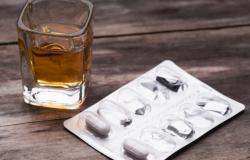(CNN) — It has long been known that sleep plays a crucial role in health and well-being. Numerous studies have documented the relationship between health and the quantity and quality of people’s sleep. Anyone who has had a bad night’s sleep can attest that they had less energy and were more moody the next day.
According to a 2023 report from the US Centers for Disease Control and Prevention, about 18% of American adults take some form of sleep medication, including over-the-counter pills and prescription medications. 6.3% reported taking sleep medications every day and 2.1% most days.
Although medical treatments can help you fall asleep, are some ways more effective than others? Is there any danger in trying over-the-counter supplements like melatonin? And what about the recent social media sensation, “the sleepy girl cocktail”? What non-pharmaceutical measures can help you fall asleep? And why is it important to seek medical attention for insomnia?
To answer these questions, I spoke with CNN wellness expert Dr. Leana Wen. Dr. Wen is an emergency physician and associate professor at George Washington University. She was previously Baltimore’s health commissioner.
CNN: How do we know sleep is important for health?
Dr. Leana Wen: The evidence is solid. For example, studies have shown that people who regularly sleep less than seven hours a night have a higher prevalence of diabetes, obesity, and hypertension, which are major risk factors for the development of heart attacks and strokes. People with irregular sleep patterns may also have a higher risk of cardiovascular disease.
Lack of sleep can affect the functioning of the immune system and increase the chances of contracting diseases. Additionally, lack of sleep can impair learning, problem solving, decision making, and emotional control. And daytime sleepiness can be dangerous; increases traffic accidents and work injuries.
CNN: What types of medical treatments can help you fall asleep?
Wen: The US Food and Drug Administration has a list of medications, both prescription and over-the-counter, that are approved to treat insomnia and lack of sleep.
It is important to note that many of them carry significant side effects, such as drowsiness the next day, sleepwalking, confusion, and dizziness. Some can be habit-forming and should not be used long term. Many interact with other medications. Anyone considering these treatments should talk to their doctor before starting them.
CNN: Are over-the-counter medications safer than prescription medications?
Wen: Not necessarily. For example, some people take antihistamines such as Benadryl to help them fall asleep. Antihistamines can cause dangerous overdoses if taken in large amounts or mixed with other drugs or alcohol. These medications can also cause sedation and impair a person’s functioning the next day. All of this goes to say that just because something is over-the-counter doesn’t mean it’s safe in all cases.
CNN: What about melatonin? What is it and how does it help you fall asleep?
Wen: Melatonin is a hormone that the brain produces in response to darkness. It helps regulate our circadian rhythm—our internal clock—and is therefore an important hormone for sleep.
Melatonin supplements are laboratory versions of this hormone. There is evidence that melatonin supplements can help counteract jet lag. They can also help shift workers and people who have trouble falling asleep at a normal time at night. Research is inconclusive regarding the usefulness of supplements for people with chronic sleep problems.
One thing to keep in mind is that melatonin is a supplement and is not regulated by the FDA in the same way as prescription medications. Dosage and purity may vary from brand to brand. The same guidance applies to other supplements that people can try as sleep aids. People should approach melatonin and other supplements with caution and, as with other over-the-counter medications, discuss use first with their primary care provider.
CNN: Which medications are most effective?
Wen: It depends on each person. As with any other health problem, some people may respond better to one type of treatment and others to another.
Taking a step back, I think it is essential that anyone considering taking a sleep medication contact their doctor first. You should undergo an evaluation to find out what is causing your sleep deficiency.
Maybe it’s just that you’re not getting enough sleep. That’s different than not being able to fall asleep once in bed. Additionally, some people are able to fall asleep but then wake up in the middle of the night.
Your doctor can evaluate other aspects of your life. Drinking alcohol, for example, may help some people fall asleep more quickly, but it can actually increase nighttime awakenings and reduce sleep quality. Certain medications could be stimulants and may be affecting your sleep. Maybe you have an undiagnosed medical condition, such as sleep apnea or restless legs syndrome, that is waking you up. It is important to have this evaluation to find the root of the problem before starting medication.
CNN: There’s been a lot of talk on TikTok and other social platforms about the “sleepy girl mocktail.” What can you tell us about this trend and if it is safe to try?
Wen: I hadn’t heard of this, but you’re right: it’s all over the internet. This is a recipe for half a glass of tart cherry juice mixed with a tablespoon of magnesium powder and topped with sparkling water or prebiotic soda.
I think the tart cherry juice was probably selected because it naturally contains some melatonin. It’s a small amount, but perhaps it can have some impact on promoting sleep. Magnesium is a mineral that some studies suggest may help with relaxation and sleep. Soda water is probably prebiotic because of the taste.
I’m not sure this concoction meets an evidence-based standard for treating insomnia, but it seems pretty safe, as long as the products are purchased from reputable places. Some people may respond to it because of a placebo effect, but to that, I say, why not? If it helps someone sleep better and doesn’t cause harm, keep doing it.
CNN: What other non-pharmaceutical measures can help you fall asleep?
Wen: This is a key question and goes back to the question of why someone is having sleep problems. Many people struggle because they don’t have enough time in bed, which is an important first component of good sleep. If your ideal sleep duration is at least seven hours per night, you should aim to spend at least eight hours in bed.
It’s best to go to bed around the same time every day, including weekends. Avoid naps if possible. The sleep environment matters too. It is best to sleep in a cool, quiet and dark place. Screens interfere with sleep, so try to avoid looking at your phone or television right before bed.
Finally, there are other non-pharmaceutical measures, such as increased physical activity, yoga, and acupuncture, that may help some people. Be sure to talk to your doctor to diagnose any other problems, and then try different methods in consultation with your doctor to see what works best for you.






